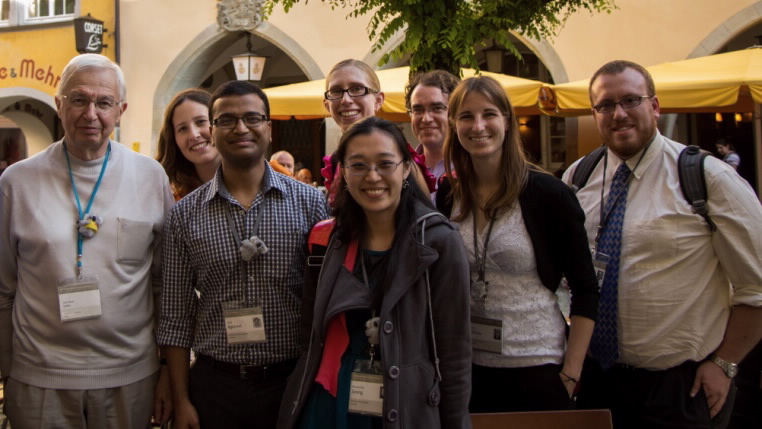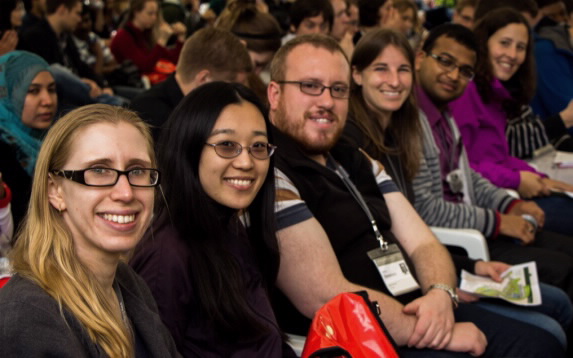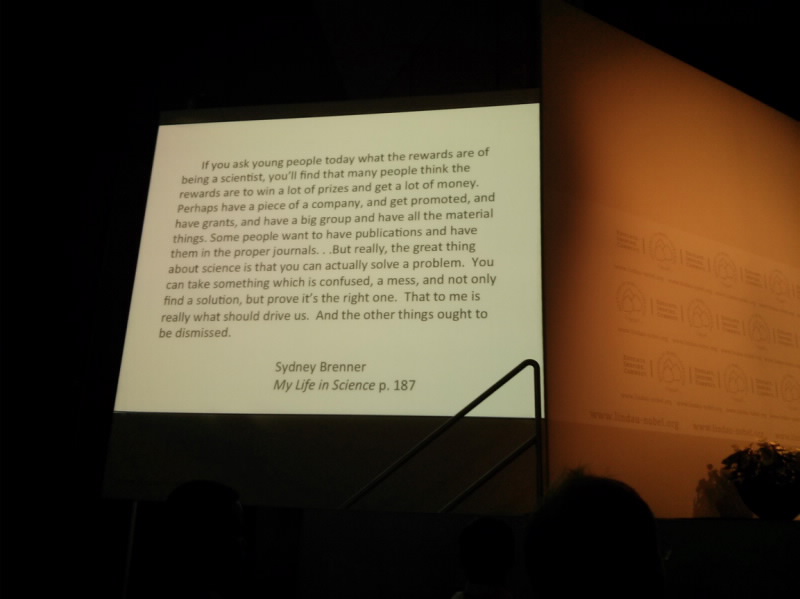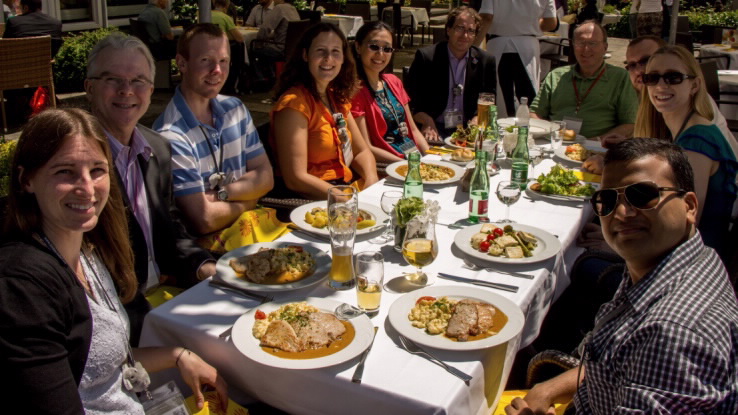Ever wondered what it would be like to stand face-to-face with a group of Nobel Prize winners and share your ground-breaking work? ANSTO's Anwen Krause-Heuer was fortunate enough and reported on her trip to Lindau in Germany.
Radiochemist Krause-Heuer from the Australian Nuclear Science and Technology Organisaion (ANSTO) was one of only a small group of young researchers from around the world selected to mingle with some of the biggest names in science and discuss their work and ideas.
The life scientist from Campbelltown was one of only eight people from Australia and just over 600 globally to be given the honour to travel to Germany for the 63rd Lindau Nobel Laureate Meeting and network with some of the world's best and brightest, including Brian Kobilka winner of the top prize in science for his work on G protein-coupled receptors.
Read her report below.
 |
I am incredibly fortunate to have been selected as one of the Australian delegates at the 63rd Lindau Nobel Laureate meetings. This year, 34 Nobel Laureates congregated in beautiful Lindau, Germany to meet 625 young researchers from 78 countries. It was such a unique opportunity, and it is quite difficult to capture in words the incredible spirit and inspiring nature of this meeting.
Special thanks also to Professors Mark von Itzstein and Andrew Holmes for travelling with the Australian delegation, and putting the time, effort and resources into organizing additional opportunities to meet with the Laureates. I would encourage all who are interested to utilize the resources offered by the Lindau Mediatheque where videos of past meetings are available for viewing.
Day One: 30 June
The meeting was formally opened on the afternoon of Sunday 30th June by Countess Bettina Bernadotte. The enthusiasm and dedication that the Countess demonstrates for the Lindau meeting, and her belief in the importance of the role of young scientists was very touching and a perfect start to the meeting. Her heartfelt welcome made me feel incredibly privileged to have been selected to attend the meeting.
After the opening ceremony Paul Stevenson and I were invited to attend dinner hosted by the American students; we had great discussions on a wide range of topics, mainly centered on political differences between our two countries.
Day Two: 1 July
 |
| Australian delegates with Nobel Laureate Jean-Marie Lehn |
On Monday we started our first day of scientific presentations by the Laureates. Brian Kobilka (Chemistry, 2012) opened the day, and it was encouraging to see that even after winning a Nobel Prize, he was still incredibly nervous before his presentation.
Serge Haroche (Physics, 2012) shared some of his thoughts on blue sky research, and how it takes time to converge into novel technologies.
This talk made me realize that there are so many things that we learn about and take for granted as undergraduate students, but they are truly ground-breaking discoveries. The beautiful animations of the proton pump in action and the analogies to a mechanical machine (spring, pump, bearing); and the intricacies of the different ring symmetries between multicellular and unicellular organisms were fascinating.
He also encouraged us to watch the lectures by Professor Richard Feynman. Monday evening concluded with dinner hosted by the Republic of Korea.
Day Three: 2 July
 |
| Australian delegates at Mainau Island |
We are now in the era of the 4P’s of medicine: personalized, predictive, preventative and participatory, where diseases should now be looked at within the context of the patient in a systematic (not erratic) manner.
In his opinion, we cannot limit the development of science because someone may abuse it, the limit needs to be imposed by free democratic society. In the afternoon discussion session we gained further insights into the thought-processes behind his ubiquitin discovery.
Ada Yonath spoke on ‘Curiosity and its Fruits’, about her discoveries on ribosomes, but also on her position as a female scientist. She encouraged all young women in the audience that you can achieve both a career in science and a fulfilling family life.
On Tuesday afternoon I attended the Masterclass with Kurt Wüthrich; this was an excellent opportunity to hear from other young Lindau attendees about their research in the field of nuclear magnetic resonance (NMR).
On Tuesday evening we had the Academic Dinner hosted by the Australian delegation, attended by Nobel Laureates Rudy Marcus and Robert Grubbs, as well as a number of other young researchers from around the world.
Day Four: 3 July
 |
| Quotation from Sydney Brenner during presentation by Nobel Laureate Martin Chalfie |
This sentiment was shared by many of the Laureates; their goal was never to win a Nobel Prize, it was their love and passion for science that drives them.
I also found Dan Schechtman’s (2011, Chemistry) presentation on crystallography quite fascinating, as he discussed some of the opposition, doubt and rejection he faced from his peers about his discovery of quasi-periodicity, and how it took years before they eventually accepted his discovery and subsequently revised the definition of a crystal.
Richard Ernst (Chemistry, 1991) gave a fascinating presentation on “Widen Your Scope”, and his passions for Tibetian art. We spent Wednesday lunch with Richard Schrock, his wife Nancy and Walter Gilbert.
Day Five: 4 July
The highlight of Thursday was the Bavarian evening, hosted by the free State of Bavaria. Two Lindau attendees from the region gave excellent presentations on their research, followed by a traditional German feast!
Day Six: 5 July
 |
| Australian delegates and academic representatives Professor Mark von Itzstein and Professor Andrew Holmes from the Australian Academy of Science |
The second panel on Green Chemistry, where there were some very interesting and challenging discussion points, most raised by Michael Braungart, who pioneers sustainable industrial processes. It was then lovely to have some time to explore the gardens of Mainau Island before the closing ceremony.
Published: 20/08/2013


